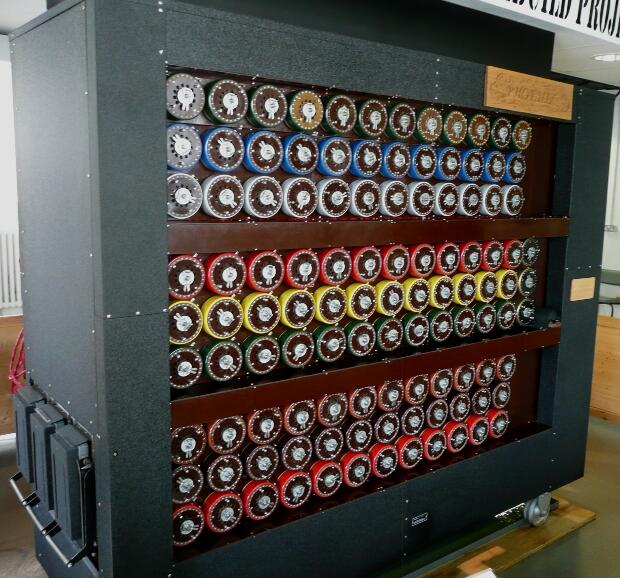Innovation
Alan Turing was a well-accomplished man in his time. Turing had achieved greatness in the fields of code-breaking, computer designing, and artificial intelligence. In 1945 after Turing's involvement with WWII he had gone to National Physical Laboratory in London to create his own electronic computer. The design for his Automatic Computing Engine was the first complete electronic stored-program all-purpose digital computer and if it had been built as Turing had initially planned then it would have had larger amounts of storage and be faster than the other early computers. Turing is a founding father of artificial intelligence, he had thought of the human brain as a kind of computing machine as well. He had even thought of a way to test a computer's intelligence with what is now called the Turing Test, in that if a computer convinces people in thinking it was a human then it could be called intelligent. Turing had also devised an idea of what's now called a Turing machine, which acts as a universal computing machine meaning everything that is computable can be computed by it.
Though some of Alan Turing's most important work would come after he had returned from his studies in the US back home in England in 1938. As Turing in 1939 would join the Government Code and Cypher School in helping with the war efforts after war erupted with Nazi Germany. Turing and his co-workers would design a code-breaking machine called Bombe, named in reference to a polish code-breaking machine named Bomba. The allies for the remaining war would use the Bombes for military intelligence to break the Nazi's Enigma code. This would allow the allies to have a comprehensive knowledge of what their enemy's plans were and how to counter them.

𝘐𝘮𝘢𝘨𝘦 6, techrepublic
"By cracking the Enigma Code, my great uncle Alan Turing is believed to have saved around 14m lives, and to have shortened the Second World War by two years."
Rachel Barnes, independent.co.uk